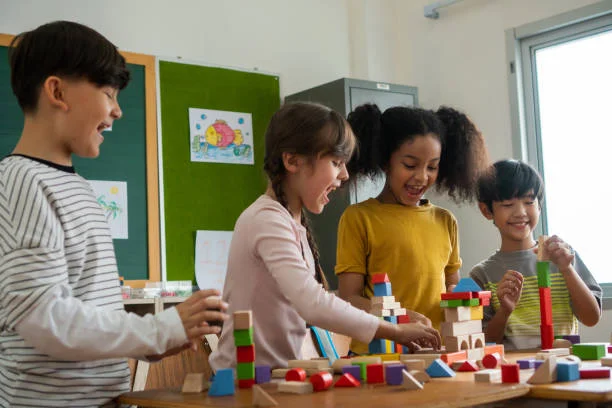As the world rapidly evolves, so too does our understanding of how children best learn and develop.
At the forefront of early childhood education, Reservoir Child Care Campus embraces one of the most effective and research-backed approaches to learning: play-based learning. While it may seem simple on the surface, play-based learning is a powerful tool that nurtures a child’s cognitive, emotional, social, and physical growth in meaningful ways.
So, what makes play-based learning so impactful? Why is it considered a cornerstone in building brighter futures for young children? In this blog post, we’ll explore the true power behind play-based learning, and why it’s far more than just fun and games.
You might also like: A fresh take that complements what you just read.
The Power of Play in Developing Cognitive Skills
Play is the work of children. It’s through play that children explore the world around them, make sense of their experiences, and begin to form a foundation for more complex learning. Research consistently shows that play enhances cognitive development, such as problem-solving, critical thinking, and creative skills. Whether a child is stacking blocks, experimenting with water, or engaging in pretend play, they are learning important skills in areas such as:
- Cause and effect: For example, when a child drops a ball and watches it bounce, they begin to understand the concepts of gravity and motion.
- Numeracy and literacy: Through games like counting toys or storytelling, children pick up early numeracy and language skills without even realizing it.
- Creativity and innovation: When children engage in imaginative play, like pretending to be a chef or a superhero, they stretch their creativity and problem-solving abilities.
Social and Emotional Growth
While cognitive development is essential, social and emotional development is just as critical in the early years. Play-based learning encourages children to interact with their peers, collaborate on tasks, and navigate social situations—all of which are crucial for building emotional intelligence.
- Learning empathy: Through pretend play, children often take on different roles, experiencing the world from various perspectives. This helps them understand and relate to the feelings of others.
- Building communication skills: As children play with others, they practice communication, negotiation, and conflict resolution skills.
- Self-regulation and independence: Play allows children to make their own choices, face challenges, and experience both success and failure. This fosters a sense of independence and builds resilience.
Encouraging Active Learning Through Hands-On Experience
Children are natural explorers, constantly absorbing new information. Play-based learning offers them the freedom to explore at their own pace, in a hands-on and interactive way. It promotes active learning—where children learn by doing. Rather than simply being taught facts, children are given opportunities to experiment, test their ideas, and learn through their mistakes.
For example, a simple activity like building a fort out of pillows and blankets requires children to use critical thinking, collaboration, and fine motor skills. When faced with challenges (like a structure that keeps falling), they learn how to adjust their approach, make decisions, and persist until they succeed.
Promoting Physical Development
It’s not just the brain that benefits from play—children’s physical development is nurtured as well. Play allows children to develop gross motor skills (like running, jumping, or climbing) and fine motor skills (such as drawing, using scissors, or building with small blocks).
These activities not only promote strength, coordination, and agility but also contribute to a child’s overall health and well-being. When children have the opportunity to engage in outdoor play, whether it’s riding a bike, playing tag, or digging in the sand, they are not only exercising their bodies but also learning about the world around them in a more direct and tactile way.
Building a Love for Lifelong Learning
Perhaps one of the most valuable outcomes of play-based learning is that it fosters a lifelong love of learning. When children learn through play, they don’t see education as a chore—they see it as something fun, exciting, and full of possibilities. This intrinsic motivation to learn builds a foundation for future academic success and encourages a child to approach challenges with curiosity and enthusiasm.
- Hands-on experiences encourage exploration and critical thinking.
- Social interactions promote teamwork and collaboration, which are crucial skills in the real world.
- Playful problem-solving develops skills in creative thinking and resilience.
A Personalized Approach to Learning
Unlike traditional forms of education, where children may be required to fit into a rigid curriculum, play-based learning offers a personalized approach. Every child learns at their own pace and in their own unique way. Whether they enjoy art, building, storytelling, or role-playing, play allows them to dive into their interests and passions, making learning a more individualized experience.
This approach not only respects the diversity of learning styles but also encourages self-directed learning, where children are empowered to pursue their own interests and curiosity. This kind of autonomy instills confidence and a sense of control over their own educational journey.
Fostering Collaboration and Community
One of the key benefits of play-based learning is that it encourages children to work together as a team. Whether they’re building a group project, playing a game, or solving a problem as a team, children learn the importance of collaboration and community.
These experiences are invaluable in developing teamwork, leadership, and interpersonal skills. As children learn to share ideas, negotiate, and support each other, they develop strong social bonds that help them thrive in group settings, both in school and later in life.
Conclusion
Play-based learning isn’t just about fun and games—it’s about setting the stage for future success. By encouraging cognitive, social, emotional, and physical development through play, we provide children with the tools they need to thrive in school and in life. From fostering problem-solving skills to building confidence and creativity, play helps children learn important life lessons that will serve them for years to come.
If you enjoyed this post, you’ll love what’s featured on 2A Magazine.







